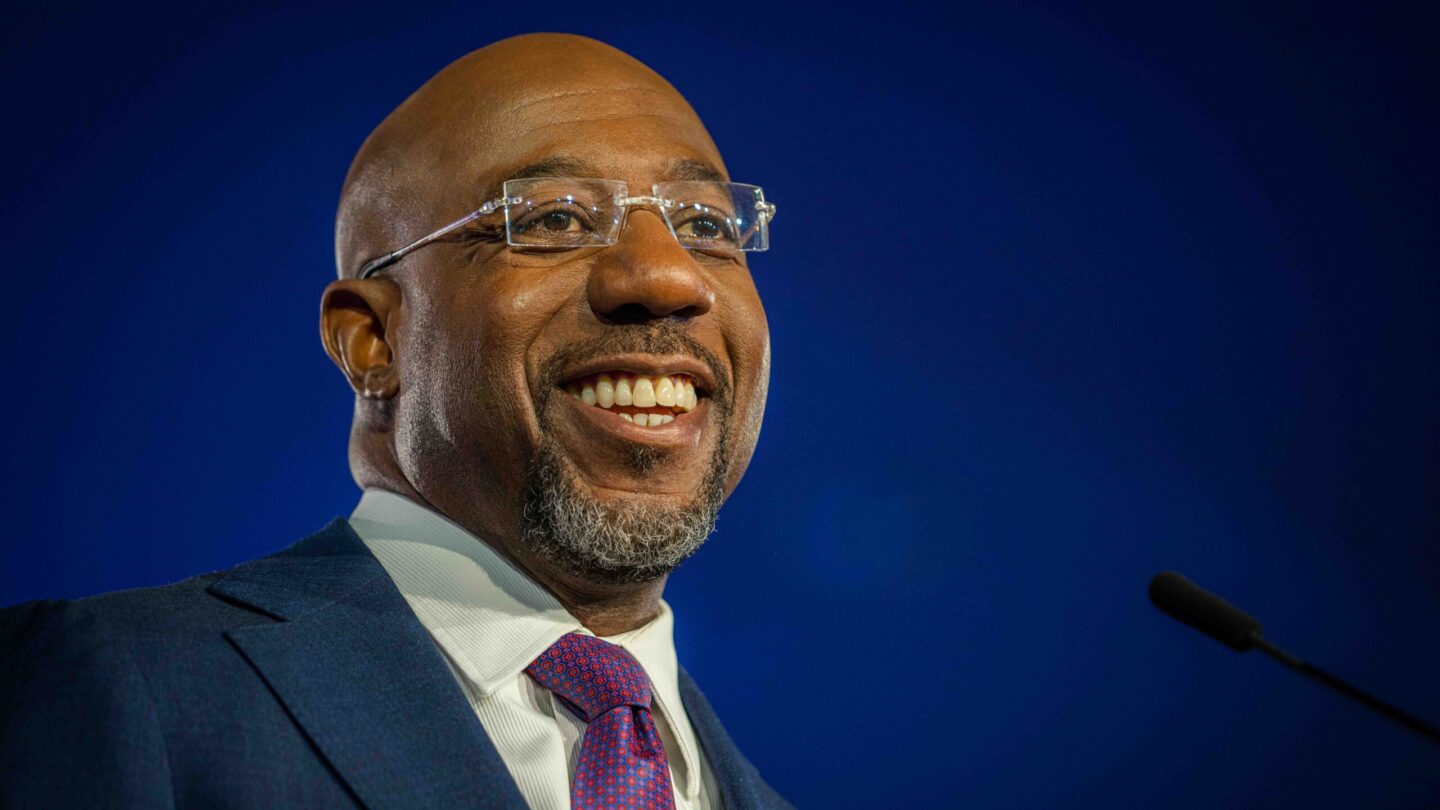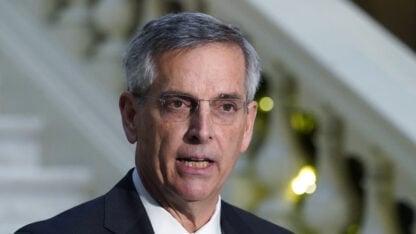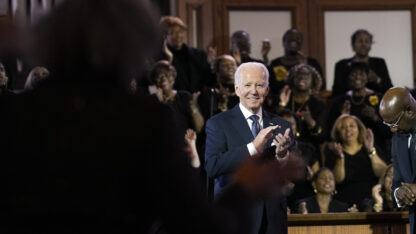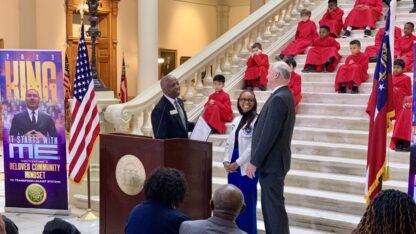Newly reelected Democratic Sen. Raphael Warnock of Georgia is promising to use his first full term to cut deals where possible with Republicans and deliver for his home state. But he’s adding a new role: unapologetic supporter of President Joe Biden.
Warnock, who tried to avoid mention of Biden during his hard-fought campaign last year against Republican Herschel Walker, said he looks forward to supporting Biden if the president runs, as he has indicated he will, for a second term in 2024.
“I’m not going to get ahead of the president,” Warnock told The Associated Press in a wide-ranging interview Wednesday. “I think he will announce that he’s going to run and … I intend to support him.”
Warnock, 53, sidestepped questions about his political ambitions but indicated he was warming to his status as a leading figure among Georgia Democrats. He said he is lobbying Biden and national Democrats to choose Atlanta for the party’s 2024 national convention. And he supports a plan by the Democratic National Committee, championed by Biden, to make Georgia an early nominating state in the presidential primary process.
Warnock has faced voters five times over the past three years in an unusual combination of primaries, special elections, traditional elections and runoffs. Now he can settle into a six-year term.
As he did during his last campaign, Warnock plays up the substance of his elected job — pushing Republicans in Georgia to expand Medicaid, capping insulin costs for diabetics on Medicare, working with Republicans on Capitol Hill to keep Georgia-based military operations open. That’s in addition to his service as senior pastor at Atlanta’s Ebenezer Baptist Church.
“I don’t want to give them too much credit, but it’s just obvious that they ran a very good campaign,” said Chip Lake, a top adviser to Walker’s campaign.
Warnock lamented some of the most searing attacks against him, especially tied to his position at Ebenezer , where Martin Luther King Jr. preached. Republicans hammered him for getting a $7,000-plus monthly housing allowance from the church. It was considerably higher than during his pre-Senate tenure and was a way for Warnock to continue to draw money from his pastor’s role while avoiding exceeding the Senate’s cap on members’ outside wage income.
“We followed all of the requirements, and we disclosed everything,” he said.
Lake said it’s a mistake to dismiss Warnock’s abilities simply because of how much Walker, a former football star and first-time candidate, struggled to navigate his troubled past.
Warnock’s winning runoff margin — just shy of 3 percentage points — was less than Republican Gov. Brian Kemp’s nearly 8-point victory in November over Democrat Stacey Abrams. But the bottom line, Lake said, is that Warnock did the same thing Kemp did: “He figured out to win his base and the middle.”
The senator insists that he always will “work with anybody,” even the most conservative, Trump-allied Republicans. He declined to offer details about his relationships with Republican senators, saying he does not want to hurt them politically.
“When we’re working together to get things done, sometimes that’s not all that sexy to people and all that interesting,” he said.
Warnock cited his collaboration with Rep. Buddy Carter, R-Ga., and the congressional delegation’s work on infrastructure, agriculture and in-state defense facilities. Warnock said there’s a group of senators from both parties who are willing to build on his measure that caps Medicare recipients’ monthly insulin costs at $35.
“We ought to be able to get that done for people on private insurance as well,” Warnock said, though he would not identify GOP senators who might help the effort in a chamber where it takes 60 votes to move most legislation.
Yet alongside his talk of bipartisanship, Warnock leveled a withering critique at Kemp and Georgia Republicans who have declined to expand Medicaid under the 2010 Affordable Care Act. The decision means hundreds of thousands of Georgians are not considered poor enough to qualify for existing Medicaid but also are not wealthy enough to use the health law’s marketplace.
“It’s obvious that Georgia ought to expand Medicaid. I mean, it’s really obvious. And the only thing that gets in the way of that is politics,” Warnock said, noting that many Republican-run states are among the 38 that have expanded Medicaid.
Warnock said he has talked with Kemp since their respective victories but would not detail their conversations.
Warnock said he does “pinch himself” because of his role and status as Georgia’s first Black senator. He noted that his office is located in an imposing Washington edifice named for the late Georgia Sen. Richard Russell, who was serving when Warnock was born in 1969.
“He got a lot of things done for Georgia. He did. But he was also a segregationist,” Warnock said. “I am inspired when I think about the arc of American history and what’s possible. We still have a long ways to go, but we’ve gotten a lot done.”









